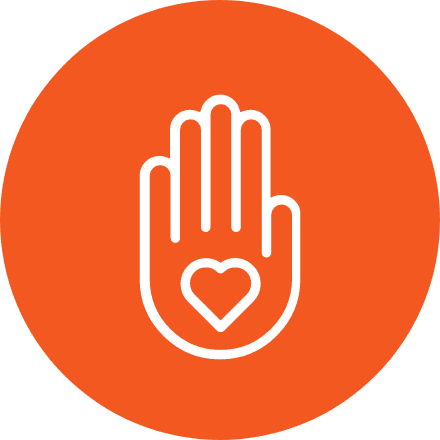DC Grandparents for Mental Health
DC Grandparents for Mental Health is a movement by adults 60+ years of age in Washington, DC, united in promoting mental health through peer-to-peer and intergenerational conversations and interventions.
Building on the success of DC Grandparents Against COVID-19, the goal is to provide mental health support to community members of all ages from trusted older people.

Further Reading
Friendship Bench DC
Friendship Bench DC is a pilot program of DC Grandparents for Mental Health, supported by HelpAge USA.
Friendship Bench DC is modeled on the Friendship Bench in Zimbabwe, which was created by Dr. Dixon Chibanda to expand access to mental health by equipping older people to provide care for individuals experiencing difficult thoughts and feelings. Friendship Bench DC will bring the Friendship Bench program to Washington, DC—training older people, or “grandparents,” on how to deeply listen and empathize; how to detect red flags and make referrals to professional care if needed; and the basics of talk therapy to help people solve their own problems.
After training is complete, grandparents are certified to serve on a Friendship Bench. The first benches are set up in safe community spaces throughout DC (e.g., senior wellness centers, community dining sites, faith-based communities) for people of all ages to come visit and find a listening ear starting in 2024.
Read more about Friendship Bench DC by downloading the playbook or checking out the FAQs below.
Questions or interested in learning more? Contact Jeffrey Prost-Greene, Program Manager, at jprostgreene@helpageusa.org.
FAQs
Friendship Bench DC is a community-based program addressing the scarcity of mental health resources, particularly in Wards 7 and 8, by training lay individuals to provide mental health support. Originating in Zimbabwe, Friendship Benchis an evidence-based program recognized for its effectiveness in mitigating anxiety and depression, backed by over 100 scientific, peer-reviewed studies. HelpAge has adapted this model by training the first cohort of older Black adults to serve as Friendship Bench DC grandparents, mirroring the successful approach of training "grandmothers" in Zimbabwe.
Beginning this spring, Friendship Bench DC will provide a way for individuals aged 16 and above to confidentially share their story with an older person and know they will receive empathy, respect, and understanding. Friendship Benches will be placed in safe community spaces throughout Washington, DC.
There is a mental health crisis among people of all ages and a lack of resources and other barriers to care. The older people behind the DC Grandparents for Mental Health and Friendship Bench DC want to stop the secrecy and stigma around mental health and help others feel less alone. By joining together, they know they can have a positive impact and be part of the solution.
Older people are custodians of wisdom and culture in our community. They are an untapped resource who can provide emotional support or simply a listening ear. Through Friendship Bench DC, older people can give others a sense of connection and personally gain a sense of purpose and fulfillment. The concept builds on the successful Friendship Bench model pioneered in Zimbabwe.
Friendship Bench DC grandparents have completed bi-weekly training sessions held over the course of 10 weeks. There are three levels of training that allow them to provide different types of support to different groups:
- In Level One, grandparents learn the basics of mental health and listening skills.
- In Level Two, grandparents learn how to recognize symptoms and refer to a higher level of care if needed.
- In Level Three, grandparents learn how to provide basic problem-solving therapy to help people find workable solutions to the issues that are causing them to be anxious or depressed.
Training and supervision is provided by Dr. Dixon Chibanda, who pioneered the Friendship Bench in Zimbabwe, in collaboration with local mental health professionals.
We welcome partnerships with local organizations (e.g., social services, faith-based communities, schools, etc.) who can offer Friendship Bench DC to the people they serve. The benches will be “staffed” one or more days each week with older people who have been trained to listen and express empathy to those struggling with difficult thoughts and feelings.
Flyers will be available for each Host Partner to build awareness about Friendship Bench DC as a resource, conveying that the grandparents are not mental health professionals. Rather, they have been trained as laypeople to provide a confidential listening ear and sense of belonging in the community.
Visitors can sign up to meet with a Friendship Bench DC grandparent who is sitting at the bench or be referred by staff. One of the first questions the grandparent will ask is: “Tell me your story.” A set of screening questions will help determine if a visitor needs to be referred to a higher level of care. However, experience shows that most people just need a listening ear to feel better.
Friendship Bench DC provides mental health support to individuals aged 16 and above.
No, but volunteers do need to be 60+ years of age. Many older people are like a grandparent to others and can play an influential role in their lives.
This depends on the individual, but evidence from the Friendship Bench in Zimbabwe shows that most people feel better after four to six sessions.
Check Us Out on WHUTtv!
In this episode of “The Daily Drum with Harold Fisher,” DC Grandparents for Mental Health and Friendship Bench DC expert Dr. Gigi El-Bayoumi and DC Grandparent Grace Whitmire discuss the topic of seniors and mental health in Black America.





